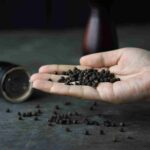
DAMIEN MEYER/AFP/Getty Images
Owen Fiss, the longtime Yale law professor, has a new book out. Called Pillars of Justice, it devotes a chapter each to thirteen lawyers who influenced his thinking (and not incidentally, also left their marks on the world). I don’t know Fiss, and I don’t know much about legal history, but the portraits he paints contain rich insight. They have as much to say about great leadership and inspired teaching—and the crucial role of asking questions in both—as about the evolving legal doctrine of the civil rights era.
Take, for example, his account of how he was mentored by Harry Kalven, a leading light at the University of Chicago Law School—an apprenticeship that started when Fiss joined its faculty in the summer of 1968. As Fiss describes their interactions, they always began with a question, which grew into an “intense, all-absorbing” dialogue as the two walked through a nearby perennial flower garden and along the Chicago lakefront. “His method was conversation,” Fiss writes of Kalven:
“He would manage to find in the words of the apprentice glimmers of insight, which he would then restate in terms so eloquent and profound that they deepened understanding and encouraged further inquiry and comment. The apprentice felt obliged to say more, to think harder, to look at the problem from a new perspective. The conversation became an escalation of insights. That was the core of my apprenticeship with Harry. It was one of the most extraordinary experiences of my life, and it revealed the special qualities of the master.”
Fiss concludes that “Harry Kalven was a genius, a completely original intelligence.” Whether the two of them were discussing a recent Supreme Court decision, a political event, or the future of legal education, he says, “My view of the world would almost always change.”
Reading praise like this for a mentor is always uplifting, and for many of us, it raises its own question, too: Who have been my greatest teachers, and what made them so special? For me, the name J. Bonner Ritchie comes immediately to mind, and for similar reasons. Ritchie was my mentor while I earned my master’s degree, and, as I’ve put it elsewhere, “he singlehandedly rewrote the maps in my mind by constantly confronting my worldviews.” He was a world-class questioner. Another of his students once said about Ritchie, “There is no question he dare not ask.” (This was in contrast to another faculty member, about whom it was said, “There is no question he dare not answer.”)
Perhaps you’ve had your own great teacher who, on reflection, you realize had a knack for “escalating insights” by asking questions—and even better, encouraging you to ask better ones yourself. If so, you may be as appalled as I am at the large body of research that shows how little generative questioning goes on in the average education setting—whether we’re talking about grade school, high school, college, or workplace training sessions. James T. Dillon of the University of California, Riverside, studied this phenomenon several decades ago. He observed that students who give voice to their curiosity get all sorts of negative reactions from both teachers and classmates. The lesson they take away from the experience is “Don’t ask questions.” Scholars monitoring other classrooms and arenas of learning and decision making consistently come to the same conclusion: Creative inquiry is an innate human behavior that gets actively suppressed and shut down. And thus children grow into adults who always dare to answer but never dare to question.
Owen Fiss makes clear that, as well as knowing his share of inspirational thinkers, he has also experienced the corrosive effects of bad teaching. He tells the cringe-inducing story of a professor in his first year at Harvard Law, back when a class of about 125 students included only three or four women:
“Now and then students volunteered a comment or posed a question, but for the most part Leach conducted his classes by calling on students to recite the facts of a case or answer a question he put to them. At the beginning of the course, though, Leach announced that he would not call on any of the women students on a regular basis. Instead he would designate one or two ‘Ladies’ Days,’ during which the women students, and only the women students, would be called on.”
To this day, it rankles with Fiss that he and his classmates didn’t object on the spot to this obnoxious marginalization. Instead, “we said nothing, not a note of disapproval, not even a whimper.” If Kalven’s effect on his students was an escalation of insights, then this man’s was just as surely a stultification of them. I suspect it’s no coincidence that the other aspect Fiss recalls about him is his stunted form of questioning.
Teachers (and leaders) who make good use of questions—the kinds that challenge assumptions and draw others into intense, all-absorbing dialogues—produce proteges who don’t hesitate to defy traditional thinking themselves. Whether it’s an outdated preconception that needs to be confronted, or an outright prejudice, the person who rises to the occasion will be someone who was a student once, and who learned to question.
[“Source-forbes”]





